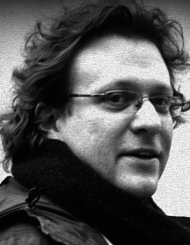

The writer’s father, Igor, was a Ukrainian poet and novelist, arrested by the KGB for distributing “harmful literature” in the 1970s and eventually exiled to London, where he became an important voice in the Russian department at the BBC World Service. Pomerantsev punctuates his investigations with fragments of memoir, which illustrate the fact that he was, in many ways, born to his current role. He also confronts their nemeses, from the “bot-herders” in Nizhny Novgorod promoting far-right memes, to the Etonian Nigel Oakes, founder of the company behind Cambridge Analytica, which infamously employed research into online “behavioural dynamics” to shape populist election campaigns.

He meets heroes of online resistance – Srdja Popovic in Belgrade, who offers “training courses that allow activists everywhere to pass exams in how to overthrow dictators without firing a shot”, and the delegates of the annual gathering of the world’s fact-checkers in Rome. “Ersatz reality” attempts to extend the notion of subjectivity into all realms of knowledge Pomerantsev’s “adventures” take him from a skyscraper in Manila – where he meets the boyish Facebook manipulator who first shaped the murderous rise to power of President Rodrigo Duterte in the Philippines – to the vast “International Research Agency” in St Petersburg, and the testimony of “Lyudmilla”, the whistleblower who exposed the industrial level of Russian efforts to drive western political sentiment to tribal extremes (including whole nine-to-five departments dedicated to injecting vitriol into the comment sections of British and American news sites).


 0 kommentar(er)
0 kommentar(er)
